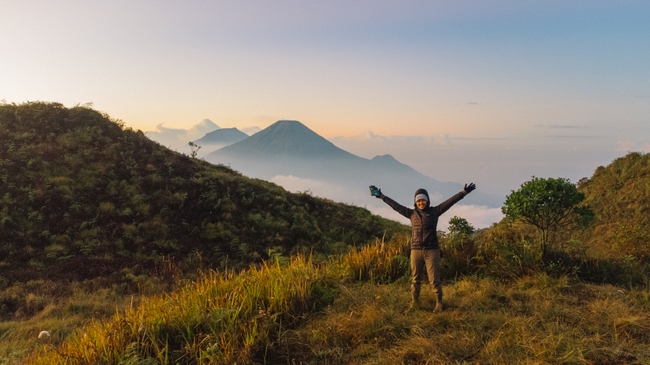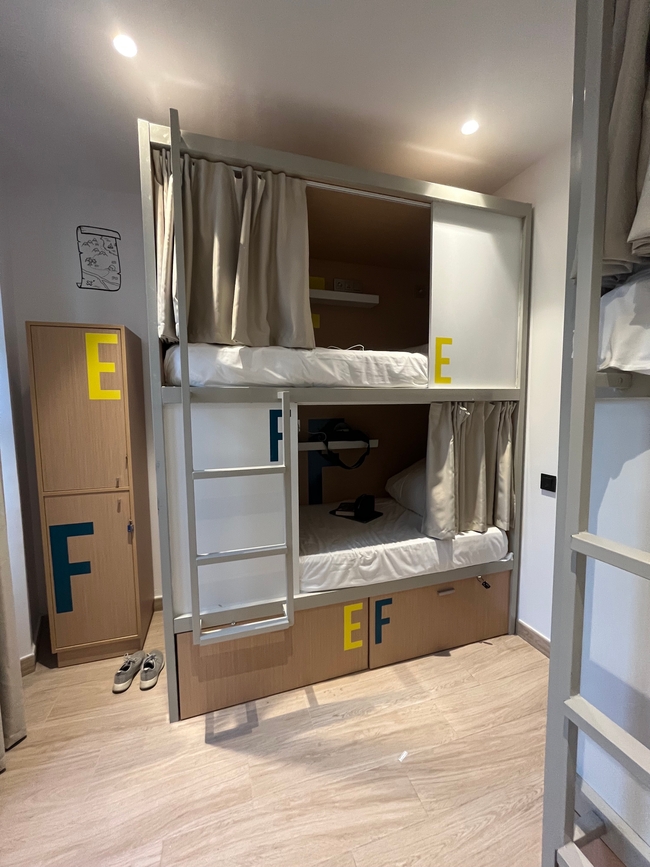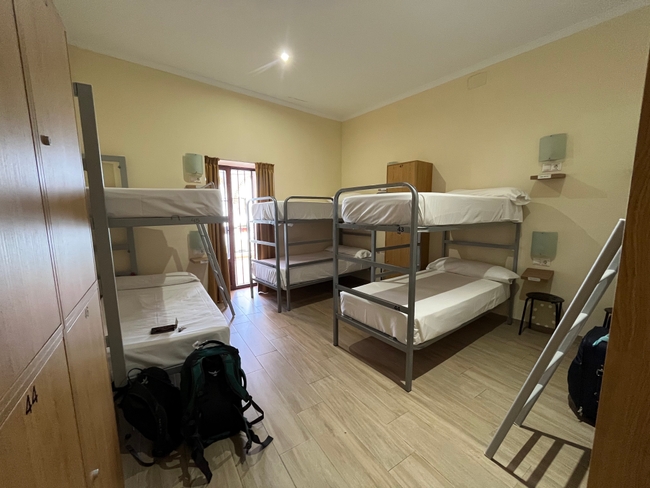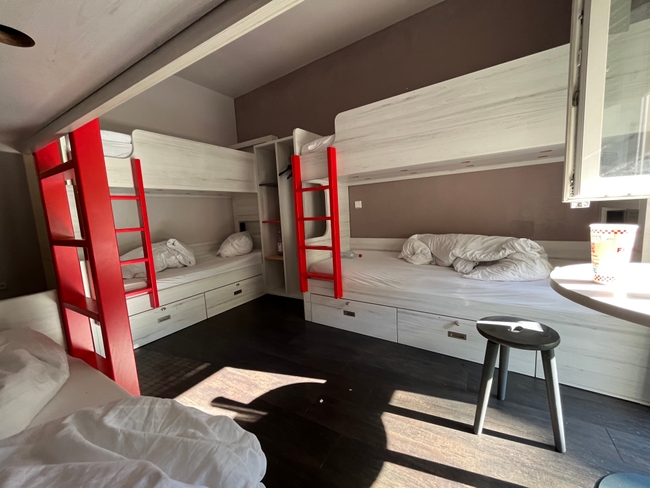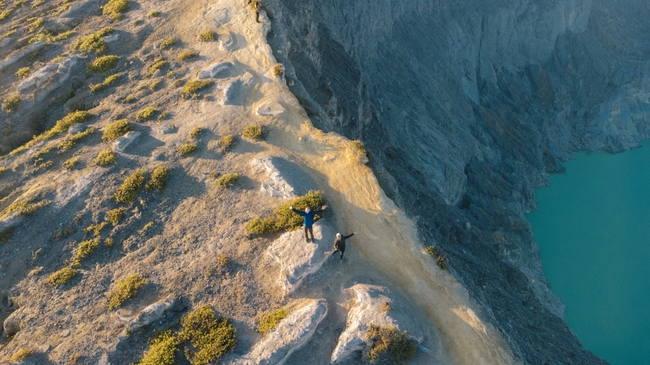How I budgeted for 23 weeks of travel in 2022
December 04, 2022 · 12 min read · travel2022 has been an unusual year for me. I resigned from my last job in the spring, and during the past eight months, I’ve been lucky to spend more time with family, spend time on things I always wanted to do (e.g. take Spanish classes!), explore parts of the world I’ve never been to before, and most importantly, relax and recharge. It’s been a whirlwind of a year, and I have so many stories to share, from my 23 weeks of travel, how I’ve become conversational in Spanish, to finding a software engineering job in the ClimateTech space.
Given the amount of traveling I’ve done this year, a lot of people have been curious to know how I’ve budgeted my trips throughout the year. Travel can be expensive, but I’m happy to share that it’s not always the case. Travel can be more affordable than you’d expect, I think you’d be surprised by how much you can achieve with a smaller budget.
Before I continue, let me just say how incredibly privileged I am to have been able to take this time off. Of course, it wasn’t a decision I took lightly, but I’m aware of how lucky I am to work in a field where not only the demand for people with my skillset is high, but to also get paid well to do my job. Because of that, I was confident that I would be able to find a job whenever I was ready to enter the workforce. I understand that for many different reasons—whether it be from a financial aspect, immigration aspect, or other—not everyone is lucky to be in this situation, and therefore might not be able to just take off 8 months to travel, but hopefully this post is helpful regardless.
🤔 Planning details
As I started thinking about what I wanted to do during my mini gap year (including how much money I would need to save up for it), I started making a list of the places I wanted to visit. For each country I wanted to visit, I started doing some rough research into how much it would roughly cost to travel there, as well as things I could do. A few resources that I found were helpful included:
- Hostelworld and Booking.com to check the price of accommodations, as well as scout out the best areas to stay in
- Rome2Rio to plan out routes across different destinations
- Airbnb Experiences to get ideas for activities to do
From the list above, I started planning out a timeline that would make sense. The things that I took into consideration were:
- 📍 What is the fastest way to get from point A to point B? e.g., instead of flying straight to Jakarta from Boston, why not make a pit stop in Europe, since there are a few places I want to visit there anyway? Rome2Rio is a really good resource for this.
- 📆 When are my friends and family available? e.g., Nadia (my sister) is planning to move into her new apartment in Montréal at the end of April. Although it will be more hectic, it would be nice to help her out with the move… things like helping her move furniture, finding new furniture, and giving her company in a new city.
- 🌤 What is the best time to visit certain places in terms of weather? e.g. Spain gets extremely hot in the summer, so it would make sense to visit Spain earlier in the summer when it’s at least bearable, vs visiting it in July.
- 💍 Do I need to be in a certain place at a certain time? E.g. if I want to attend my friend’s wedding in Indonesia, then I would need to be in Bali in late July.
Of course, with a lot of moving pieces, it got a little bit difficult to coordinate everything. That’s why it was important to stay flexible with plans. For example, I knew that I wanted to pass through Germany, but I didn’t know exactly which cities I would visit and for how long I would spend in each place until perhaps a couple of weeks before. Of course, there are some things that would be better booked in advance, such as long-haul flights, but I’ve found that there are perks to spontaneity too. It can be overwhelming to plan out every single detail of the trip in advance, but I also feel that sometimes your priorities can change depending as the trip progresses.
💰 Budgeting
Afterwards, I created a Google Spreadsheet template to start budgeting (the template is available here, if you’re curious). During my travels, I made sure to write down everything I spent money on, so that I could make sure I didn’t go over budget. It was a little tedious at first, but I quickly got used to grabbing a quick photo of every receipt I have.
All in all, I ended up spending a total of $13,203 on 23 weeks of travel, which averages out to $574/week. This included:
- $5,673.35 on 9 weeks in Canada and Europe (on average $630/week)
- $2,188.23 on my 2-weeks in Turkey (the flight itself was $895.87, and I also spent a few nights in hotels as opposed to hostels 🥵, so I spent on average $646/week)
- $1,838.36 on 3 weeks in Mexico (on average $496/week, excluding flights)
If you’re curious, you can also scroll to the bottom of this page to see a more detailed breakdown of my travel spending.
Here are some tips that helped me reduce my spending over these weeks, as well as general travel tips.
🛏 Accommodation
Accommodation is one of your biggest sources of expenditure. Say you spend $100/night on a hotel in Europe (which is already considered really cheap in certain areas), you’ll end up spending $3,000/month on accommodations alone!
Try saving money by staying at hostels, or with friends whenever possible. The first time I stayed in a hostel, it definitely felt uncomfortable. Besides, you are sharing a room with random people. However, it will definitely save you a ton of money. I paid on average $25/night on mid-tier hostels in Europe, $20/night on hostels in Turkey, and $10/night on hostels in Mexico.
Another upside to staying at hostels is that if you’re traveling solo, staying at hostels help you meet other solo travelers! Whenever I stay at hostels, I always make sure to check the reviews to see what kind of hostel they are. Is it a party hostel? Will it be easy to make friends? Are the bathrooms clean? Do they serve breakfast? Make sure you do your research first, as not all hostels are the same!
🚕 Transportation
Depending on where you’re traveling to, transportation can also be one of your biggest sources of expenditure. I’m not the craziest travel hacker out there, but I do try to use either credit card or airline points to book flights whenever I can. For example, on this trip, I booked the following flights via points:
- Boston → Paris via Air France (commonly $400+ For direct flights)
- Boston → Guadalajara via Delta One (not even sure how much this would normally cost, but probably $2,000+)
🚄 Rail Passes
Get a transport/rail pass if it makes sense. I got the EURail which is the non-EU equivalent of the Interrail. With these rail passes, you pay a fee upfront to purchase the pass, and that gives you access to a number of train routes across Europe. There are various options to choose from, and I ended up purchasing the Global Pass for $331 which gave me 10 travel days within 2 months, anywhere in Europe.
🚶 Walking Tours
Go for a Free Walking Tour the morning of your first full-day in a city. They’re cheaper than pre-paid tours (they operate based on tips, and I normally tip $10-25 depending on where I am), they help you get your bearings in a new city, and generally they will tell you where to go and where to not go. I normally find these walking tours by searching “[city name] free walking tours”, or by searching on GuruWalk.
🧠 Travel learnings from this year
🤑 If you’re used to spending a lot, know that you can do with a lot less
A lot of people have this perception that travel is expensive. And yes, it is to a certain extent. Not everyone can afford to travel, and I consider myself lucky to have the privilege to travel. However, travel can be much, much cheaper than what you think. I think a lot of people have the mindset of “If I’m going to travel to X place, then I want it to be a perfect and magical experience,” and therefore they have the perception that they need to save $4,000 to go on a 2-week trip to Spain. But honestly, I think it’s unhealthy to have these unrealistic expectations. Nothing is ever perfect, so you need to be flexible, and have an open mindset. Just because you didn’t dine at that one restaurant, or visit that one spot in the city that travel influencers talk about, it doesn’t mean that you didn’t have a good time. My friend Zack sent me this article on Vox that touches on this feeling of always wanting the “best”, and it encapsulates my thoughts really well.
Also — I’m not saying that spending money is bad. If you have the money, go for it. What I’m saying is, you don’t need to wait until you saved X amount or money, or until it’s the perfect season, or until x y z things are in perfect alignment. There will almost never be a perfect time for it. Just go! If you hold yourself to unrealistic standards, you’ll never end up going.
✌️ Get used to solo travel. It’s okay, you’ll make friends!
Another thing that I think holds people back from exploring more of the world is the fear of solo traveling. Yes, getting to explore somewhere new with your loved ones is a great experience to have, but I don’t think that it means that you won’t have a great experience exploring by yourself. Solo travel comes with its own advantages (e.g. being able to go wherever you want and do whatever you want), plus, if you always wait until someone else is available to go with you, you might not ever go there.
I’ve also found that when you’re solo traveling, you end up meeting and befriending other solo travelers. Heck, when I was traveling in Istanbul, I made a friend while petting stray cats on the street, and we ended up hanging out the entire next day!
💬 Learn as much of the local language as you can
Perhaps this is obvious, but wherever you go, it’s always important to be respectful of the locals. Tourism can have a tremendously positive impact, but it can also negatively impact the places we visit.
One thing I think we can easily do to show our respect to the locals is by learning a bit of the local language, even if it’s only 10 key phrases. Even if your pronunciation isn’t perfect, the locals will still appreciate that you took the time to learn it. Some key phrases I always try to learn are:
- Thank you
- Please
- Good morning
- Excuse me
- Do you speak English/or other language?
- I don’t understand
- Where is the bathroom?
- Basic numbers, e.g. counting from 1 to 10
I think that speaking in the local language language (or at least attempting to) is an easy thing we can do to show our respect as foreigners. I consider this a no-brainer, but I’ve met so many people who don’t even attempt to learn a few words in their host-country’s language and just expect everyone to speak to them in English. I remember having a conversation with a taxi driver while I was in Istanbul, and he was so impressed that I knew how to say “thank you” and count from 1-10 in Turkish! It honestly doesn’t take that much time, and will probably help you make more local friends along the way too. There’s this quote from Nelson Mandela that perfectly sums this up:
“If you talk to a man in a language he understands, that goes to his head. If you talk to him in his own language, that goes to his heart.”
💸 My spending breakdown
This is a rough breakdown how much I spent in the end:
- Canada
- Accommodation: $55.07/night
- Food & dining: $27.92/day
- Spain (Andalucía & Barcelona)
- Accommodation: $28.09/night
- Food & dining: $20.48/day
- Activities: $27.71/day
- Denmark (Copenhagen)
- Accommodation: $60.79/night
- Food & dining: $65.16/day
- Activities: $14.82/day
- The Netherlands (mostly Amsterdam)
- Accommodation: $0.00/night (stayed with a friend!)
- Food & dining: $25.07/day
- Germany (Hamburg, Berlin, Dresden)
- Accommodation: $28.20/night
- Food & dining: $13.55/day
- Activities: $3.92/day (I got the Museum Pass in Berlin, which was worth it!)
- Turkey (Istanbul, Ankara, Izmir)
- Accommodation: $30.14/night (this is skewed because I stayed at Hilton Ankara for a few nights while I was there for a wedding. Aside from that, the hostels I stayed in were max $20/night)
- Food & dining: $8.52/day
- Activities: $7.27/day
- Mexico (Guadalajara, Guanajuato, San Miguel, Mexico City)
- Accommodation: $38.03/night (this is quite skewed because I spent a week in $10/night hostels and the rest in $40-50/night private rooms since I had to take some interviews while I was there)
- Food & dining: $14.06/day
